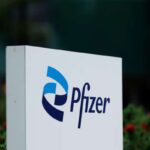
- Source: www.reuters.com
Nov. 3— Pfizer Inc. and Novo Nordisk A/S are in a legal dispute over competing bids for biotechnology firm Metsera, whose research focuses on next-generation obesity therapies aimed at improving treatment outcomes, tolerability, and patient convenience. The conflict underscores growing interest among pharmaceutical companies in advancing science-based solutions for chronic metabolic diseases.
Pfizer filed a second lawsuit on Monday alleging that Novo Nordisk structured its $9 billion acquisition proposal for Metsera to delay, rather than complete, the transaction. Both Novo Nordisk and Metsera rejected the claim. While the legal proceedings continue, attention remains on the underlying scientific and clinical work that has positioned Metsera as a significant innovator in obesity drug development.
Research focuses on GLP-1 and related pathways
Metsera’s investigational pipeline includes novel therapies that target hormonal and metabolic pathways involved in appetite regulation and energy balance. The company’s lead candidate focuses on the glucagon-like peptide-1 (GLP-1) receptor, a clinically validated target that has shown meaningful weight-loss and metabolic benefits in multiple trials across the industry.
Unlike existing GLP-1 receptor agonists that require weekly administration, Metsera’s approach aims to develop formulations that could extend dosing intervals to once a month. This would enhance convenience and adherence for patients requiring long-term treatment of obesity and related conditions, such as type 2 diabetes and cardiovascular disease.
Pfizer has highlighted its interest in Metsera’s research for its potential to complement the company’s broader metabolic disease program, which includes early-stage candidates addressing obesity through both hormonal and central nervous system pathways. These efforts are part of Pfizer’s stated goal to advance therapies that improve patients’ quality of life through evidence-based innovation.
Clinical studies emphasize efficacy and tolerability
Metsera’s Obesity Drug candidates are currently in mid-stage clinical trials evaluating efficacy, safety, and durability of response. The studies are designed to measure not only weight reduction but also improvements in metabolic markers such as glucose control, lipid profiles, and inflammatory indicators.
According to publicly available trial information, the company’s investigational therapies are being tested across diverse patient groups to ensure broad clinical relevance. Researchers are also assessing tolerability, with a focus on minimizing gastrointestinal side effects commonly associated with current GLP-1 treatments.
Collaborative and regulatory frameworks support development
Both Pfizer and Novo Nordisk have emphasized adherence to regulatory processes in their ongoing development programs. Their obesity and metabolic portfolios are advancing under active engagement with regulatory authorities in the United States and Europe. Early-phase studies have received investigational new Obesity Drug(IND) clearances, and subsequent phases are being conducted in accordance with Good Clinical Practice (GCP) standards.
Metsera has also engaged in partnerships with academic institutions and contract research organizations to accelerate data collection and trial analysis. These collaborations are intended to ensure transparency, data integrity, and compliance with international regulatory expectations.
Addressing unmet medical needs in obesity care
Obesity remains a major global health concern linked to cardiovascular disease, diabetes, and other chronic conditions. Despite recent therapeutic advances, sustained weight management and treatment adherence continue to pose challenges.
Both Pfizer and Novo Nordisk have publicly stated that their research aims to address these unmet medical needs by developing therapies with improved efficacy, safety, and convenience. Their focus on next-generation mechanisms — whether through enhanced GLP-1 agonists, dual or triple receptor modulators, or extended-release formulations — reflects an ongoing effort to refine obesity treatment through rigorous scientific investigation.
While the legal dispute between the two companies continues, researchers and clinicians are watching closely as the scientific and regulatory pathways evolve. The outcomes of these trials, and the data they generate, will ultimately determine the next phase of progress in evidence-based obesity care.
Also Read :–US Obesity Rate Falls as Use of GLP-1 Weight Loss Drugs Surges

